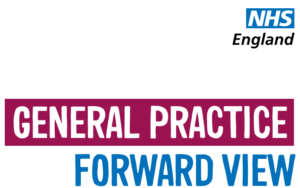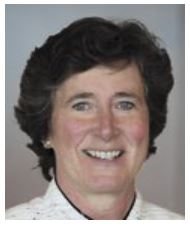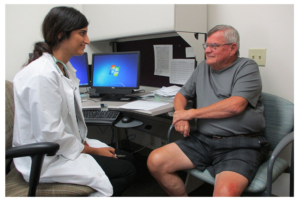- Scottish government backs new integrated five-year pharmacy degree for 2020 (pharmaceutical-journal.com)
A five-year integrated pharmacy degree, leading to pharmacist registration, is set to be introduced throughout Scotland in three years’ time. However, the detail of how the workplace learning will fit into the degree timetable and which model to adopt, has not yet been decided...Shona Robison, the Scottish secretary for health and sport, is backing the proposal from the special advisory group that...published its report, ‘Five-year integrated initial education programme for pharmacists in Scotland’…"Given our current focus on workforce planning and development and the extending role of pharmacists within multidisciplinary teams, this report provides a real opportunity to better prepare our new pharmacists for practice in Scotland by ensuring they are able to practice in the evolving NHS health and social care landscape."...there is also a need for more "enhanced experiential learning in clinical practice" and a recognition of the benefits of workplace learning which can reinforce confidence and professional competence...The new degree also supports the Scottish government’s priorities to strengthen the primary care workforce and its desire for every GP practice to have access to a pharmacist with advanced skills...
- NHS England announces extra £112m for expansion of GP-based pharmacist scheme (pharmaceutical-journal.com)
The roll out of the pilot will see a further 1,500 pharmacists working in general practice by 2020-2021...NHS (National Health Service) England has announced an additional £112m ($137m) investment to roll out a pilot scheme embedding clinical pharmacists in GP surgeries...a commitment set out in the ‘General practice forward view’...The expansion...follows a “successful” pilot that involved 490 clinical pharmacists working in approximately 650 general practices across 90 sites...The goal of the scheme is to ease pressure on the NHS by increasing capacity in general practice, which will free up GP time as well as ensure safer prescribing by offering specialist advice and support for patients with chronic diseases…The success of the initial pilots has shown the benefits of having more clinical pharmacists in general practice, reducing GP workload and helping ensure patients are seen by the right professional in a more convenient and timely way...the scheme was welcomed by the Royal Pharmaceutical Society, which says it is a “significant step” towards its shared vision with the RCGP ( Royal College of General Practitioners) that every GP practice should have access to the expertise of a pharmacist...
- Pharmacy education and provider status – Validating the 60-year debate (drugtopics.modernmedicine.com)
The knowledge, skills, and attitudes pharmacists must have in order to meet the needs of Medicare beneficiaries are exactly those that graduates acquire in our colleges and schools of pharmacy today. It might be said that practice will finally catch up with education...Why were pharmacists not included among the list of professionals when Medicare was enacted 50 years ago?...there was no vision for pharmacists' patient-care services in this era...In the decades following the introduction of Medicare, medication use has become increasingly complex. Pharmacists in every practice setting have demonstrated their ability to collaborate with prescribers to identify patients' drug-related needs...Pharmacy organizations lobbied successfully to include a modest provision for patient-care services in Medicare Part D, and medication therapy management services are currently provided on a limited basis...The profession has the potential to offer much greater value, especially to those in medically underserved communities...Are we prepared to deliver such services when Congress amends the Medicare law and adds pharmacists to the list of providers? I believe the majority of pharmacists stand ready to expand their patient-care services...As pharmacy is recognized for its vital contribution to healthcare and wellness, pharmacy education will adapt to meet the needs of the pharmacists of today and tomorrow...
- California Mulls Coverage of Comprehensive Medication Management (ashp.org)Medi-Cal: comprehensive medication management (leginfo.legislature.ca.gov)
A bill to have the nation's largest Medicaid program cover comprehensive medication management services by pharmacists and primary care physicians emerged from a committee hearing on April 5...In the past few years, we have added millions of Californians into Medi-Cal, making the effective management of the quality and cost of care an absolute necessity...CMM is a smart, important innovation to help meet these goals...CMM, according to California Assembly Bill 2084, is "the process of care that ensures each beneficiary's medications...are individually assessed to determine that each medication is appropriate for the beneficiary, effective for the medical condition, and safe given the comorbidities and other medications being taken, and [that] all medications are able to be taken by the patient as intended."...Absent from the bill, however, was any requirement for Medi-Cal to pay pharmacists for providing healthcare services or for Medi-Cal managed care plans to credential pharmacists as providers...pharmacists' strongest support comes from the rural areas of California, where access to healthcare is more difficult than in the urban centers of the state...
- MP group wants pharmacist prescribers and minor ailment scheme in England (pharmaceutical-journal.com)
All-party parliamentary group recommends community pharmacy play a bigger role in the NHS to take pressure off Gps...Giving all community pharmacists the opportunity to become prescribers by 2022 and introducing a minor ailment service throughout England are among a series of recommendations made in a report by the All-Party Pharmacy Group, following an investigation into the impact of government reforms...The APPG, which is made up of a cross section of MPs with an interest in pharmacy, has also called on NHS England to outline their strategy for implementing the recommendations of the Murray Review into "community pharmacy clinical services"…Community pharmacy is a highly valued, but an underutilised resource, the APPG said, and the profession needs to play a more integrated role in both primary care services, and the treatment of patients with long-term health conditions...The health service is facing huge challenges due to patient demand, and by working to develop services, community pharmacy can shoulder some of the burden facing GPs, and other parts of the NHS...
- VA Shifts To Clinical Pharmacists To Help Ease Patients’ Long Waits (khn.org)
Something astonishing has happened in the past year to outpatient treatment at the Veterans Affairs hospital here...Vets regularly get next-day and even same-day appointments for primary care now, no longer waiting a month or more to see a doctor as many once did...The reason is they don’t all see doctors. Clinical pharmacists — whose special training permits them to prescribe drugs, order lab tests, make referrals to specialists and do physical examinations — are handling more patients’ chronic care needs. That frees physicians to concentrate on new patients and others with complex needs...A quarter of primary care appointments at the Madison hospital are now handled by clinical pharmacists…It’s having a significant impact on reducing wait times and our office is trying to expand more of them nationally to increase access...VA hospital officials in both Madison and El Paso said they faced challenges initially in persuading doctors to delegate some duties to qualified pharmacists...Some physicians feel like it’s a turf war and don’t want to refer their patients because they feel the clinical pharmacist is trying to practice medicine...
- Vermont Pharmacists Cheer Provider Status Portions of New State Opioid Law (ashp.org)
Tucked inside a new Vermont law to combat opioid abuse are provisions that define clinical pharmacy services and indirectly confer healthcare provider status on pharmacists in the state...The legislation, formerly known as Vermont Senate Bill 243, defines a healthcare provider as "a person, partnership, or corporation, other than a facility or institution, that is licensed, certified, or otherwise authorized by law to provide professional health care service in this State to an individual during that individual's medical care, treatment, or confinement."...Separately, the law defines clinical pharmacy, in part, as the health science discipline through which a pharmacist "provides patient care to optimize medication therapy and to promote disease prevention and the patient's health and wellness."...The new law also states that insurers "may" pay or reimburse pharmacists for providing clinical services within their scope of practice...The next goal, he (VtSHP President Jeffrey Schnoor) said, is to secure reimbursement for services that pharmacists, as recognized healthcare providers, provide to Medicaid beneficiaries—and to be ready for future federal-level recognition as healthcare providers under Medicare.
- Provider status legislation co-sponsored by 108 House Representatives (drugstorenews.com)
A little more than one week following its reintroduction in the Senate, provider status legislation is again being entertained in the House...the Pharmacy and Medically Underserved Areas Enhancement Act (H.R.592)...will make it easier for Medicare patients in underserved communities to receive care...The...Act would allow Medicare beneficiaries to receive basic care such as immunizations, diabetes management, blood pressure screenings and routine checks from pharmacists. The bill reached impressive levels of bipartisan support… There is currently no avenue for Medicare to directly reimburse pharmacists for providing this care...The work already is underway to build on the momentum that was started in the last Congress, to accelerate the campaign to enhance the quality, accessibility and affordability of patient care through pharmacist-provided services...Pharmacists are highly-accessible, clinically-trained medication experts who can improve health outcomes and reduce overall costs…We hope the common-sense, bicameral, bipartisan legislation, which also generated a lot of support in the previous Congress, can pass both chambers and make it to President Trump’s desk for his signature...
- New Law Strengthens Collaborative Practice in Colorado (ashp.org)
Colorado Gov. John Hickenlooper...signed legislation, S.B. 135, which expands collaborative practice for licensed pharmacists and opens the door for health benefit plans to provide coverage for pharmacists’ services...S.B. 135 allows pharmacists to enter into collaborative practice agreements with physicians and advanced practice nurses and grants licensed pharmacists the authority to provide healthcare services to patients under protocols delegated by a physician or advanced practice nurse. The law also authorizes pharmacists to provide care under a statewide drug therapy protocol developed by the boards of pharmacy, medicine, and nursing...the law does not require health plans to pay for pharmacists’ services...Health plans must reimburse pharmacists in their provider networks for services that would be reimbursed if provided by a physician or advanced practice nurse...
- The most overtrained and under utilized profession in America (thehill.com)
In the more than thirty years I have practiced pharmacy, I have witnessed a tremendous evolution in the profession. The clinical foundation and training of a pharmacist graduating today is leaps and bounds above where I started my practice. However, one thing has not changed: a pharmacists’ role in patient care goes well beyond dispensing medications...Today, as before, many pharmacists provide patient-centered services...We are the front line of the health care team and often see patients more than any other provider. Pharmacists have become the most over-trained and under-utilized professionals in America...While doctors should remain the quarterbacks, pharmacists must be given "provider status" so the profession is able to be the integral part of the health care team we are trained to be...With provider status, pharmacists would be added to the list of Medicare providers which would not only allow for the best possible care for patients but would also ensure it is done in the most cost-effective manner...In my short time in Washington I have come to realize just how hard it can be to advance commonsense reform...a bipartisan majority of 272 members have cosponsored the Pharmacy and Medically Underserved Areas Enhancement Act introduced by Representative Brett Guthrie. This legislation simply gives pharmacists provider status...let’s move forward...to improve access to quality and affordable health care for all Americans.









